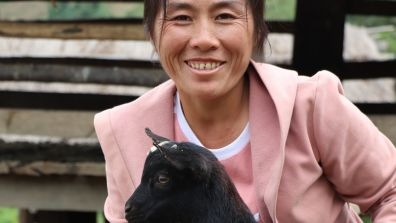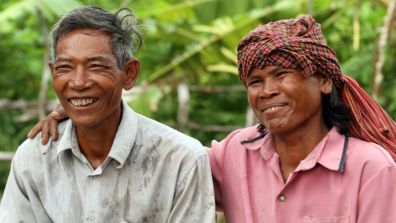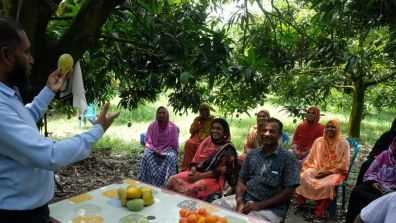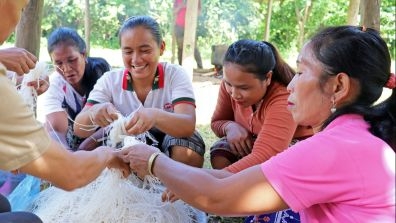About the Webinar Series
In preparation for COP28, the Global Agriculture and Food Security Program (GAFSP) has prepared a series of webinars focusing on the connection between climate, gender, and nutrition in country projects. The goal of the series was to showcase the work supported by GAFSP on the ground in different regions to internal audiences at the World Bank as well as other Supervising Entities, donors, partner organizations, and external audiences attending COP28. The Gambia Agriculture and Food Security Project, selected through the 2019 Special FCV Call, and supervised by the African Development Bank, was profiled during the webinar on Tuesday, November 28. Momodou S.W Sowe, the presenter from the African Development Bank was joined by the representatives from WFP and World Bank. Webinar was chaired by Shijie Yang, Agriculture Economist from the GAFSP Coordination Unit.
Harmony for Sustenance: Bridging Climate, Nutrition, and Gender for Sustainable Food Security in The Gambia
The presentation focused on the project's concerted efforts to achieve sustainable food security by harmonizing interventions that navigate the intersections of climate resilience, nutrition enhancement, and gender equity.
Climate Crisis within the Context of The Gambia
The Gambian landscape is significantly affected by the climate crisis. Over a span of four decades (1950-2000), the country has witnessed a 30% decline in mean annual total rainfall, accompanied by a reduction in the duration of the rainy season. This shift has led to mid-season dry spells and increased occurrences of extreme rainfall events, contributing to floods, erosion, and salinization of the River Gambia. Moreover, the altered climatic conditions have resulted in diminished soil fertility, reduced crop productivity, and loss of nutritional value in major food crops.
Malnutrition in The Gambia
Malnutrition persists as a critical concern in The Gambia, with 13.4% prevalence of food insecurity and a staggering 23.9% among rural households. Approximately 19,500 individuals face acute food insecurity, leading to high rates of acute malnutrition among children under five, reflected in a stunting rate of 15.7% and a wasting rate of 5.8%. This dire situation contributes to three months of hunger annually for affected populations.
GAFSP: Nutrition-Sensitive Climate-Smart Interventions
The Gambia Agriculture and Food Security Project financed by a grant from GAFSP and overseen by AfDB, collaborates with the Government of The Gambia and the World Food Programme. The project strategically aims to enhance food and nutrition security while boosting incomes for vulnerable households in target areas. This is pursued through multifaceted interventions such as:
-
Aligning food demand (school feeding) with local smallholder farmers' production capacities.
-
Enhancing smallholder farmers' productivity, post-harvest management, market access, and resilience in identified food chains.
-
Introducing social protection and food safety net programs to alleviate food and nutrition insecurity among vulnerable populations.
Climate-Smart Interventions and Impact
The project's interventions are diverse and targeted, ranging from climate-resilient water systems for women's vegetable gardens to providing technical support, certified seeds, and training via farmer field schools. These efforts have benefited thousands of women and smallholder farmers, enabling year-round vegetable production, promoting climate-resilient farming practices, and bolstering poultry production with minimal inputs.
Market Linkages and Nutritional Support
Master Farmers and aggregators are instrumental in ensuring the timely availability of fresh, nutritious meals for school children while generating incomes for smallholder farmers. Additionally, the project fosters market linkages, empowering women farmers to commercialize their produce and offering nutritious meals to over a thousand school children daily.
Expected Impacts
The anticipated impacts of these interventions are promising. They include increased food and nutrition security for vulnerable households, improved educational outcomes for school children, adaptation of climate-resilient farming practices, reduced drop-out rates, and enhanced cognitive skills among students receiving school meals. Moreover, the project aims to elevate the incomes of farming households through the institutional market created by the Home-Grown School Feeding Program.
In conclusion, the project's comprehensive approach seeks to harmonize climate resilience, nutrition enhancement, and gender equity to foster sustainable food security in The Gambia, envisioning a future where communities thrive despite the challenges posed by the evolving climate and nutritional landscapes.
Presentation slides | Recording of the webinar





